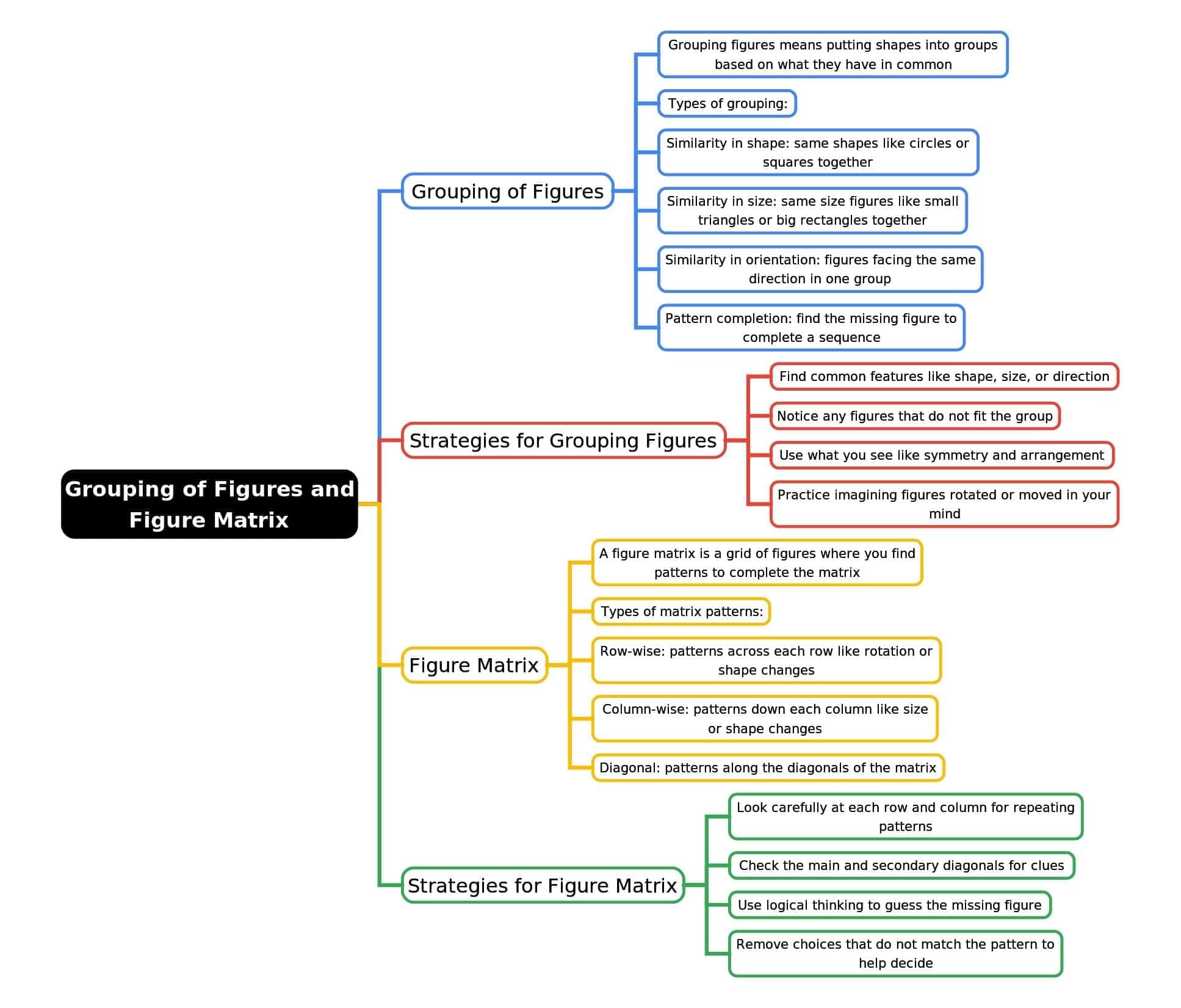UPSC Exam > UPSC Notes > CSAT Preparation > Mind Map: Grouping of Figures and Figure Matrix
Mind Map: Grouping of Figures and Figure Matrix | CSAT Preparation - UPSC PDF Download

The document Mind Map: Grouping of Figures and Figure Matrix | CSAT Preparation - UPSC is a part of the UPSC Course CSAT Preparation.
All you need of UPSC at this link: UPSC
|
205 videos|264 docs|136 tests
|
FAQs on Mind Map: Grouping of Figures and Figure Matrix - CSAT Preparation - UPSC
| 1. What are the main categories of figures that can be grouped in a figure matrix? |  |
Ans. The main categories of figures that can be grouped in a figure matrix include geometric figures such as points, lines, angles, shapes (like triangles, quadrilaterals, and circles), and three-dimensional figures (like cubes, spheres, and cylinders). Each of these categories has distinct properties and relationships that can be analyzed and compared within a matrix format.
| 2. How does a figure matrix help in understanding geometric relationships? |  |
Ans. A figure matrix helps in understanding geometric relationships by providing a visual representation of different figures and their properties. It allows for easy comparison of attributes such as area, perimeter, and angles, facilitating a deeper understanding of how different figures relate to one another. This matrix can also highlight similarities and differences, aiding in the identification of patterns and principles in geometry.
| 3. What are some examples of how to classify figures in a matrix format? |  |
Ans. Figures can be classified in a matrix format based on various criteria such as the number of sides (for polygons), angles (acute, obtuse, right), or dimensionality (2D vs. 3D). For instance, a matrix could categorize polygons with rows for different shapes (triangles, quadrilaterals) and columns for properties (number of sides, types of angles). Additionally, 3D figures like cubes and spheres can be classified based on volume and surface area.
| 4. Why is it important to understand the grouping of figures in mathematics? |  |
Ans. Understanding the grouping of figures in mathematics is crucial as it lays the foundation for more advanced topics in geometry and spatial reasoning. It helps students develop critical thinking and problem-solving skills by allowing them to recognize patterns and apply mathematical concepts to real-world situations. Additionally, it enhances their ability to communicate geometric ideas effectively.
| 5. What skills can students develop by working with figure matrices? |  |
Ans. By working with figure matrices, students can develop various skills including analytical thinking, pattern recognition, and spatial awareness. They learn to classify and compare figures systematically, which enhances their ability to engage with complex mathematical concepts. Furthermore, it fosters collaborative skills as students often work in groups to discuss and analyze the relationships between different figures.
Related Searches





















